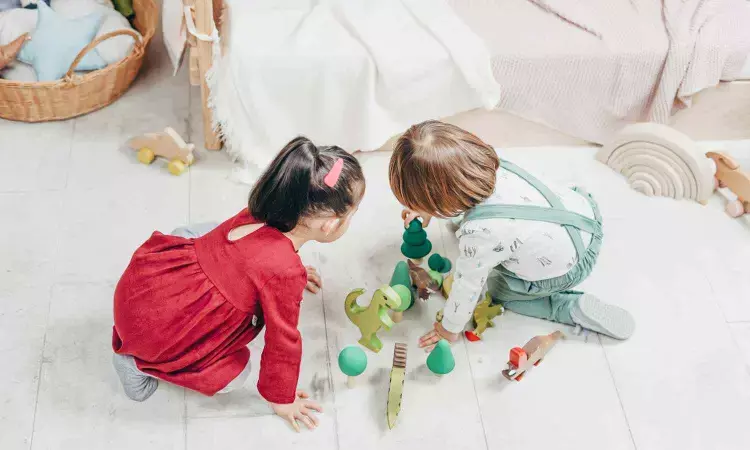- Home
- Medical news & Guidelines
- Anesthesiology
- Cardiology and CTVS
- Critical Care
- Dentistry
- Dermatology
- Diabetes and Endocrinology
- ENT
- Gastroenterology
- Medicine
- Nephrology
- Neurology
- Obstretics-Gynaecology
- Oncology
- Ophthalmology
- Orthopaedics
- Pediatrics-Neonatology
- Psychiatry
- Pulmonology
- Radiology
- Surgery
- Urology
- Laboratory Medicine
- Diet
- Nursing
- Paramedical
- Physiotherapy
- Health news
- Fact Check
- Bone Health Fact Check
- Brain Health Fact Check
- Cancer Related Fact Check
- Child Care Fact Check
- Dental and oral health fact check
- Diabetes and metabolic health fact check
- Diet and Nutrition Fact Check
- Eye and ENT Care Fact Check
- Fitness fact check
- Gut health fact check
- Heart health fact check
- Kidney health fact check
- Medical education fact check
- Men's health fact check
- Respiratory fact check
- Skin and hair care fact check
- Vaccine and Immunization fact check
- Women's health fact check
- AYUSH
- State News
- Andaman and Nicobar Islands
- Andhra Pradesh
- Arunachal Pradesh
- Assam
- Bihar
- Chandigarh
- Chattisgarh
- Dadra and Nagar Haveli
- Daman and Diu
- Delhi
- Goa
- Gujarat
- Haryana
- Himachal Pradesh
- Jammu & Kashmir
- Jharkhand
- Karnataka
- Kerala
- Ladakh
- Lakshadweep
- Madhya Pradesh
- Maharashtra
- Manipur
- Meghalaya
- Mizoram
- Nagaland
- Odisha
- Puducherry
- Punjab
- Rajasthan
- Sikkim
- Tamil Nadu
- Telangana
- Tripura
- Uttar Pradesh
- Uttrakhand
- West Bengal
- Medical Education
- Industry
Mystery of unexplained deaths in toddlers finds a new study

Toddlers are more than difficult to understand as they are unable to convey what they want to or tell how they feel. More than 2,900 US children aged younger than 4 years die from unknown causes each year, accounting for more than 219,000 life years lost annually. They are mostly sleep-related and unwitnessed with unremarkable autopsies, limiting our understanding of death mechanisms. Researchers sought to understand potential mechanisms of death by evaluating videos of sudden deaths in toddlers.
A new study in Neurology journal reveals a ground breaking cause for unexpected toddler death. Brief seizures accompanied by muscle convulsions have been named as a possible reason for the mysterious and tragic deaths — a tragic loss suffered by thousands of families in the United States each year.
Researchers used the registry of 301 sudden unexplained child deaths, a series of 7 consecutively enrolled cases with home video recordings of the child's last sleep period were independently assessed by 8 physicians for video quality, movement, and sound.
The key findings of the study are
- Four boys and 3 girls (13–27 months at death) with terminal videos shared similar demographic features to the 293 other registry cases without video recordings. Five video recordings were continuous and 2 were triggered by sound or motion.
- Two lacked audio. All continuous recordings included a terminal convulsive event lasting 8–50 seconds; 4 children survived for >2.5 minutes postconvulsion. Among discontinuous videos, time lapses limited review; 1 suggested a convulsive event.
- Six were prone with face down, and 1 had autopsy evidence of airway obstruction. Primary cardiac arrhythmias were not supported; all 7 children had normal cardiac pathology and whole-exome sequencing identified no known cardiac disease variantsResearchers ended that "Audio-visual recordings in 7 toddlers with unexplained sudden deaths strongly implicate that deaths were related to convulsive seizures, suggesting that many unexplained sleep-related deaths may result from seizures."
Reference:
Laura Gould, Codi-Ann Reid, Alcibiades J. Rodriguez, and Orrin Devinsky, Video Analyses of Sudden Unexplained Deaths in Toddlers, https://doi.org/10.1212/WNL.0000000000208038.
MSc. Neuroscience
Niveditha Subramani a MSc. Neuroscience (Faculty of Medicine) graduate from University of Madras, Chennai. Ambitious in Neuro research having worked in motor diseases and neuron apoptosis is interested in more of new upcoming research and their advancement in field of medicine. She has an engrossed skill towards writing and her roles at Medical dialogue include Sr. Content writer. Her news covers new discoveries and updates in field of medicine. She can be reached at editorial@medicaldialogues.in
Dr Kamal Kant Kohli-MBBS, DTCD- a chest specialist with more than 30 years of practice and a flair for writing clinical articles, Dr Kamal Kant Kohli joined Medical Dialogues as a Chief Editor of Medical News. Besides writing articles, as an editor, he proofreads and verifies all the medical content published on Medical Dialogues including those coming from journals, studies,medical conferences,guidelines etc. Email: drkohli@medicaldialogues.in. Contact no. 011-43720751


